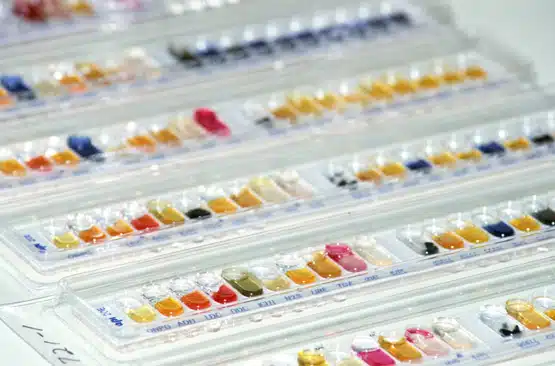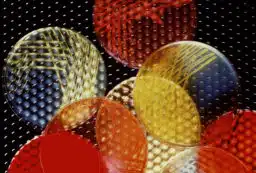Fish make omega-3 from noxious weed
Australian scientists have found that fish fed oil extracted from one of Australia’s most damaging noxious weeds, Patterson’s curse, produce health-giving omega-3 oils for human consumption.
There is growing international evidence that foods containing omega-3 oils can improve brain and heart function, have anti-inflammatory properties and may reduce the risk of some forms of cancer, says University of Tasmania and CSIRO Food Futures Flagship researcher, Matthew Miller.
But it is not widely known that fish don’t normally make omega-3 oils.
“The natural sources of omega-3 oils in the marine environment are microbes and microalgae, and fish accumulate the oils when they feed on these organisms.” Miller says. “Now we have found oil extracted from Patterson’s curse, also known as Salvation Jane, contains high levels of stearidonic acid that fish such as Atlantic salmon can convert to omega-3 oils.”
Patterson’s curse was introduced to Australia from Europe in the 1880s. It is now the dominant pasture weed in southeastern Australia, and contains chemical compounds which make livestock ill, and can even kill them. So processing for oil to feed to fish would suit everyone, Miller says.
“People are being encouraged to eat more fish, and thereby consume more omega-3, but this is placing enormous pressure on wild fish stocks and fish farmers.”
“It has created a problem in terms of finding renewable sources of food that farmed fish can convert to omega-3 oils. That’s why we were so excited when we found that Patterson’s curse could be one of these.”
Recent related work at the CSIRO has shown that oil crops, such as canola and linseed, can be modified to produce omega-3 oils using genetic material transferred from Patterson’s curse or microalgae.
Matthew Miller is one of 16 Fresh Scientists who are presenting their research to school students and the general public for the first time thanks to Fresh Science, a national program hosted by the Melbourne Museum and sponsored by the Federal and Victorian governments, New Scientist, The Australian and Quantum Communications Victoria. One of the Fresh Scientists will win a trip to the UK courtesy of the British Council to present his or her work to the Royal Institution.





 Fresh Science is on hold for 2022. We will be back in 2023.
Fresh Science is on hold for 2022. We will be back in 2023.